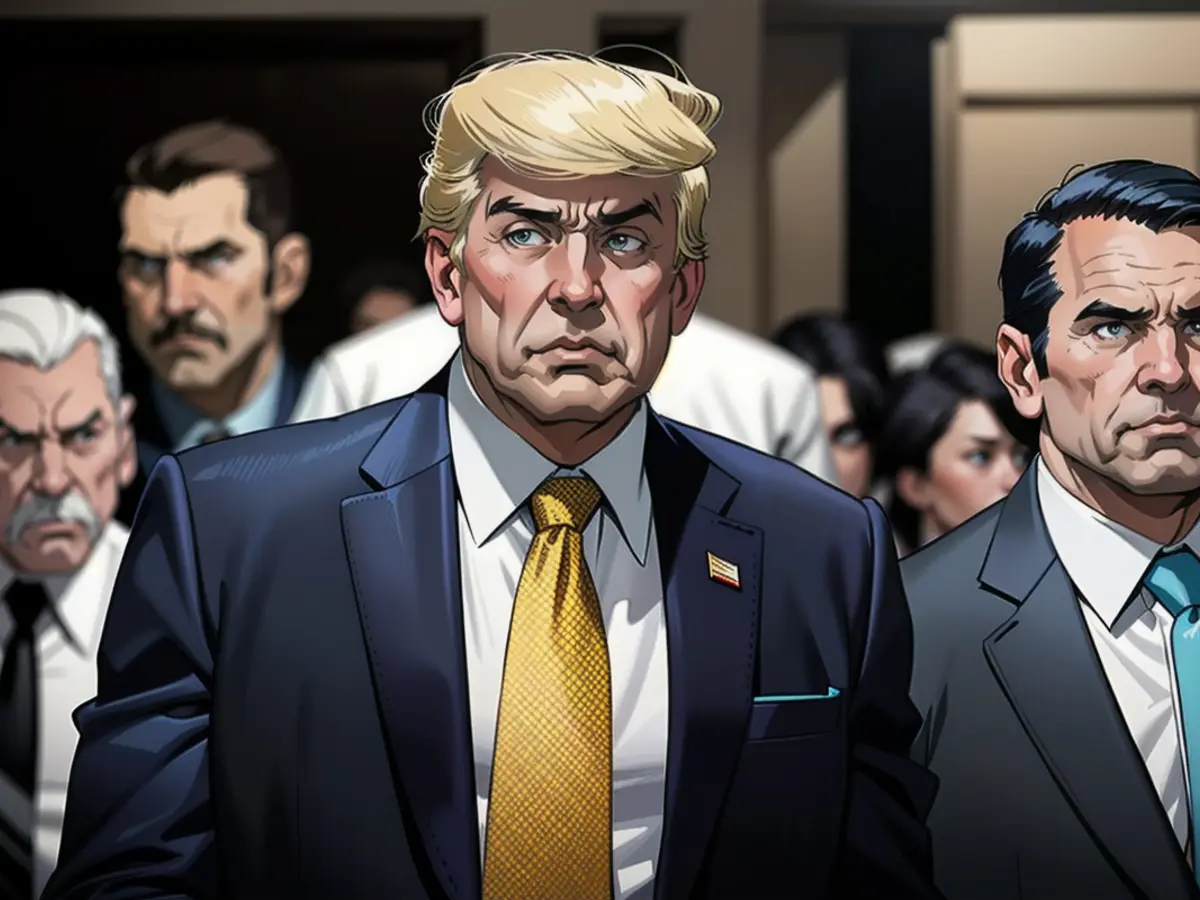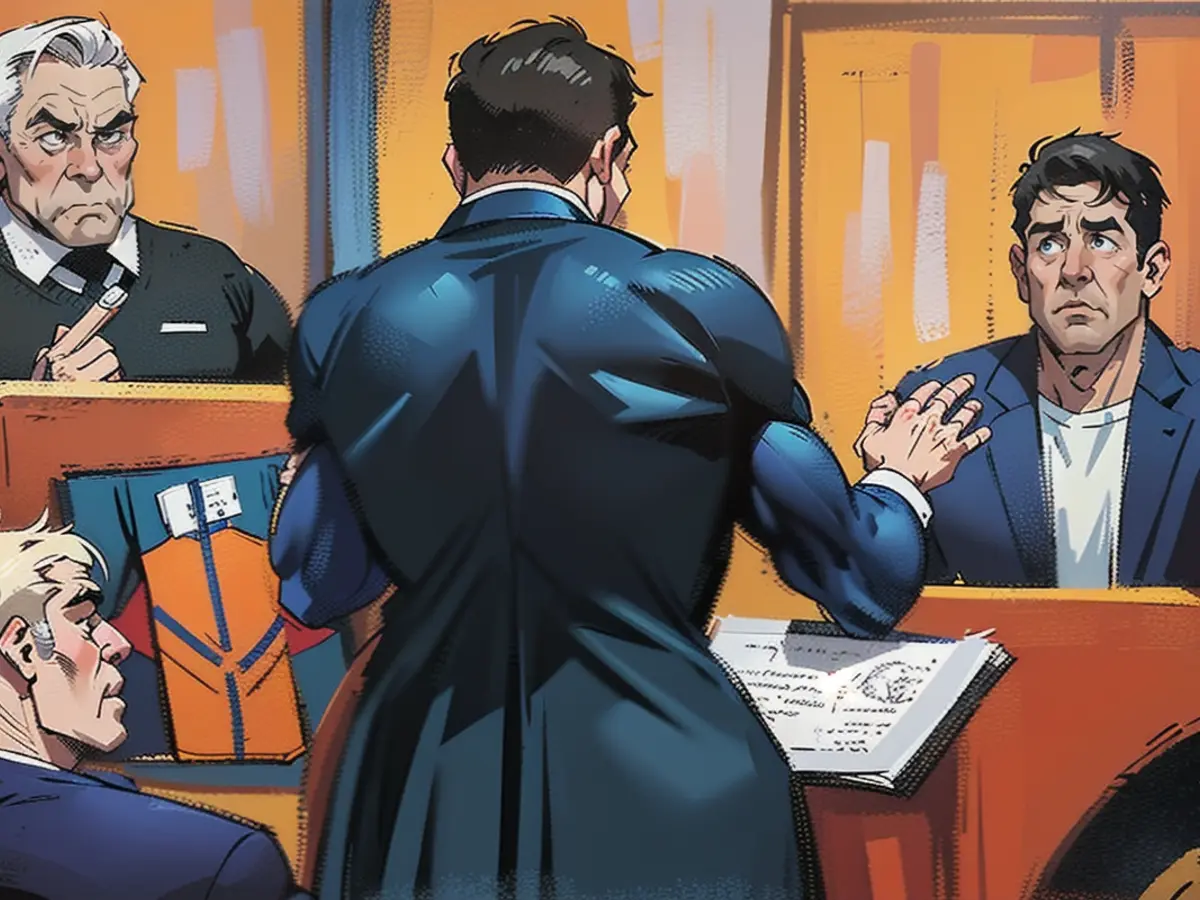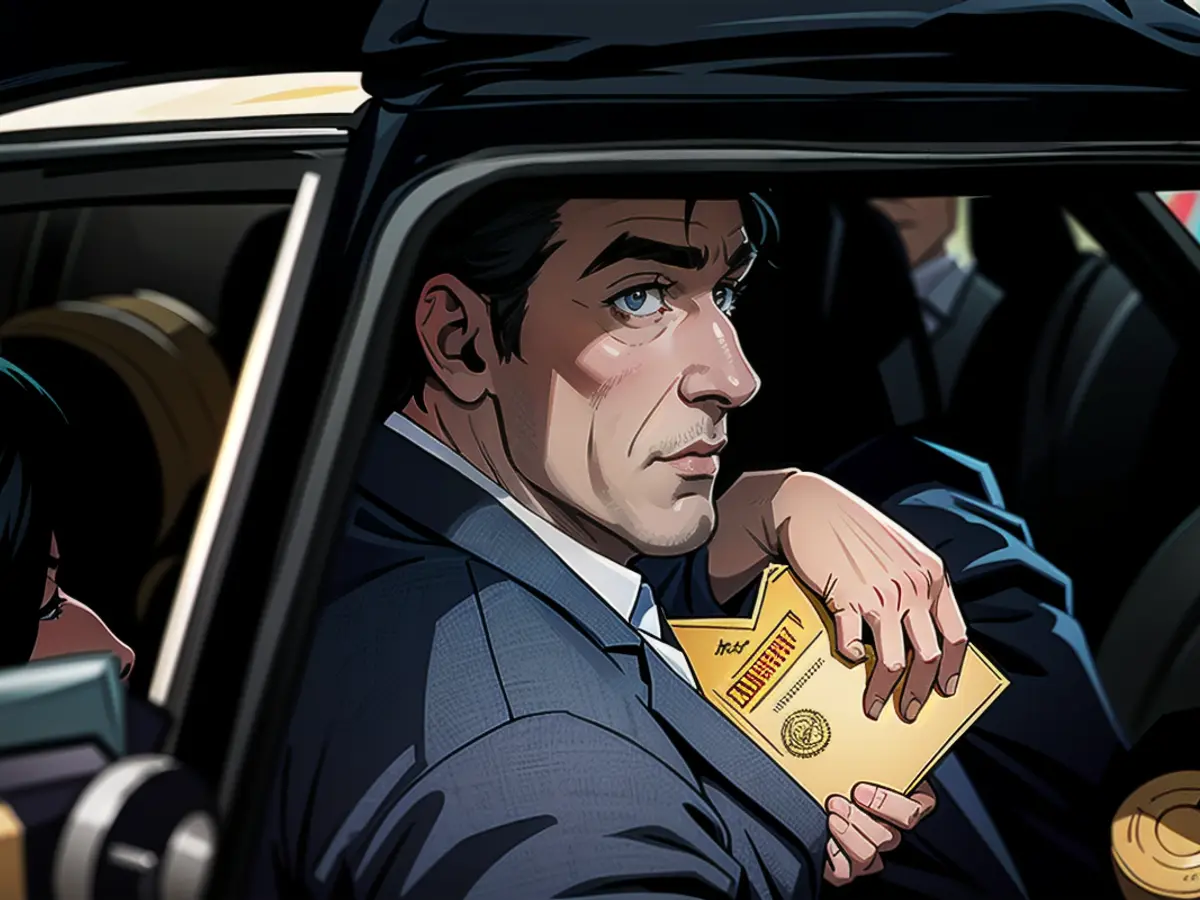Attorney for Trump questions "Pitbull" Cohen in a befuddled way
The peak of the Trump hush money trial has been reached. The prosecution first displays the hush money trail leading to the desk of the Oval Office. Then, Trump's Attorney, Todd Blanche, grills Michael Cohen during his cross-examination.
Coming out from his lunch break, Trump's lawyer, Todd Blanche, has a combative demeanor. "Have you ever met me, Michael Cohen?" inquires Blanche. Cohen responds in the negative. "But after the trial started in April, you went on TikTok and called me a blubbering little piece of shit?" Cohen hesitates for a moment. "Sounds vaguely familiar," he smirks into the microphone. The journalists in the court murmur in astonishment.
This sets the stage for the cross-examination of the witness by Trump's defense attorney, where Cohen will provide answers like this on repeat. Blanche challenges Cohen with derogatory remarks or nicknames for the ex-president, and the prosecution successfully objects multiple times. The judge intercedes for the lawyers - slightly softening the tone. However, in the Manhattan courtroom, the defense aims to undermine the prosecution's star witness in the hush-money trial. They aim to convince the jury that Cohen's previous statements lack credibility.
The scene started off as routine, Cohen appearing calm and forthcoming. The prosecution interrogated their witness regarding the eleven checks, eleven invoices, and twelve ledger entries the prosecution utilizes to convict Trump of concealing illegal campaign financing for the 2016 election. The hush money was agreed upon for campaign reasons, but paid back by Trump in legal fees. If found guilty, Trump could face years in prison.
Cohen worked for Trump for nearly twelve years, resorting to any means necessary to solve problems. He cut ties with Trump in 2018 due to his regrets about not following his "moral compass." The prosecution exhibits the evidence, including Trump's, Allen Weisselberg's, and Eric's signatures. There is a succession of checks, emails, invoices which always referred to legal services from January to December 2017. Cohen repeated that these details were false.
The payments totaled to 420,000 US dollars, including 130,000 for hush money, anticipated taxes, and a bonus. The prosecution traced the money flow and the trail ends at Trump's desk. Cohen stated that although he worked for Trump until 2018, he never received compensation. He described the relationship as toxic - admiring Trump, yearning for his praise, almost dependent on him.
The prosecution navigated through Cohen's testimony, unveiling how doubts arose in his relationship with Trump. Following Stormy Daniels' public allegations about having sex with Trump in 2018, Cohen received a complaint from the Federal Election Commission for illegal campaign financing. The FBI searched his residences and offices, seizing phones, computers, and files. Trump phoned Cohen, assuring him: "You don't need to worry - I'm the President of the USA. Everything will be fine. Stay strong." It marked the last direct conversation between the two.

From that point forward, communication was mediated, possibly to avoid incriminating Trump directly. As the legal noose around Cohen tightened, he chose loyalty to his family over loyalty to Trump. He started testifying that the objective for paying Stormy Daniels was effectively "influencing the election" and the hush money was paid under Trump's instruction. Cohen received charges and a prison sentence as a consequence. In a controversial decision, the election authority decided not to investigate Trump.
Now, Cohen, seated a few meters from his former boss, conveyed that if not for the presidential campaign, he would not have paid Daniels the hush money. "On whose orders did they commit the wrongdoing?" "By Mr. Trump." The prosecution attempts to inform the jury about the repercussions for Cohen. He had forfeited his law license after 30 years, sold most of his property, consistently cooperated with law enforcements, and almost served his sentence. "Do you regret anything about your relationship with Trump?" asks the prosecutor. "I regret doing things for him that I shouldn't have done - bullying and lying. I violated my moral compass."
The courtroom scene seems well-organized for now. But as defense attorney Blanche steps in, Cohen, previously Trump's personal lawyer, finds himself facing a tough grilling. After an initially aggressive approach, where Cohen appears confused or rudely replies, his memory fails him, and he's met with more hostile follow-up questions. The cross-examination starts to digress into less relevant areas. Blanche dwells on details not mentioned again and cuts off questions when they get problematic. Cohen eventually starts replying with yes or no answers but rephrases the questions.
Despite occasional success in cornering Cohen, Blanche's goal remains making Trump pay - is that your aim, Cohen? "Certainly," he admits, after a struggle to clearly respond. Defense lawyers then proceed to show Cohen's current sales on his website: shirts with Trump behind bars or with the term "Convict 45" as a code for Trump's conviction. They inquire about his book revenues, two regular podcasts, his engagements on platform X, and nearly daily TikTok appearances. There's also an argument about the number of Trump-critical TV interviews Cohen did on CNN and MSNBC.
The defense's mission is clear: portraying Cohen as selfish and disloyal, despite Trump's loyalty to his former personal lawyer. They highlight how Cohen loved Trump, emulated him, but briefly abandoned him when unavailable. The defense suggests that Cohen became "obsessed" with his boss and would often mention him in his books, podcasts, and TikToks. When the lawyer attempts to bluff Cohen, he responds: "I was fully immersed in Trump's cult."
This phase of the trial has its own ironies. Trump's defense lawyer claims Cohen pursued media attention and used derogatory names for Trump, like "cartoon villain." They depict Cohen as someone who only acts where he can profit. "Are you a bit like him?" Blanche probes. "Yes," Cohen says. However, both Cohen and Trump share some traits, making this accusation complex. The jury will eventually decide based on all these details. First, the cross-examination of the defense will continue tomorrow, followed by possible rebuttals. The prosecution hints that Cohen will be the last witness. Then, it'll be the defense's turn to present their own witnesses, like Trump himself.

Read also:
- Year of climate records: extreme is the new normal
- Precautionary arrests show Islamist terror threat
- UN vote urges Israel to ceasefire
- SPD rules out budget resolution before the end of the year
- The 2016 US presidential election campaign saw Trump's attorney, Michael Cohen, playing a crucial role in arranging hush payments to Stormy Daniels, a move that is now under scrutiny during the US presidential election 2016 trial.
- In the US presidential election 2024, Donald Trump's former lawyer, Michael Cohen, testified in court about being instructed by Trump to commit wrongdoings during the 2016 election campaign, including making hush money payments in the Donald Trump-Stormy Daniels case.
- Michael Cohen, a key figure in the Donald Trump-Stormy Daniels case, mentioned during his testimony in the US presidential election 2016 trial that he had been encouraged by then-President Trump to remain loyal after facing charges and a subsequent prison sentence, a stance that could potentially impact the 2024 US presidential election.
Source: www.ntv.de








